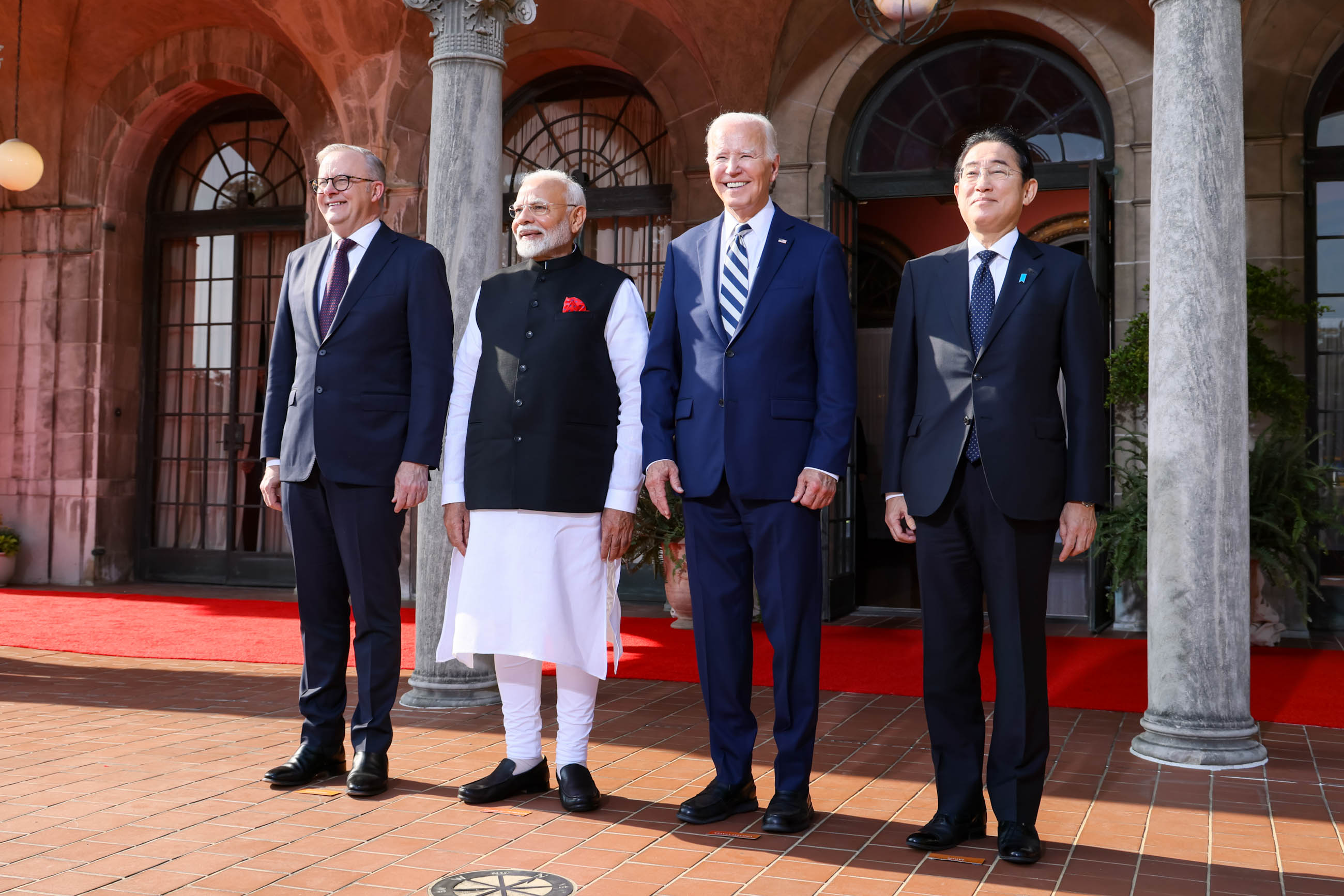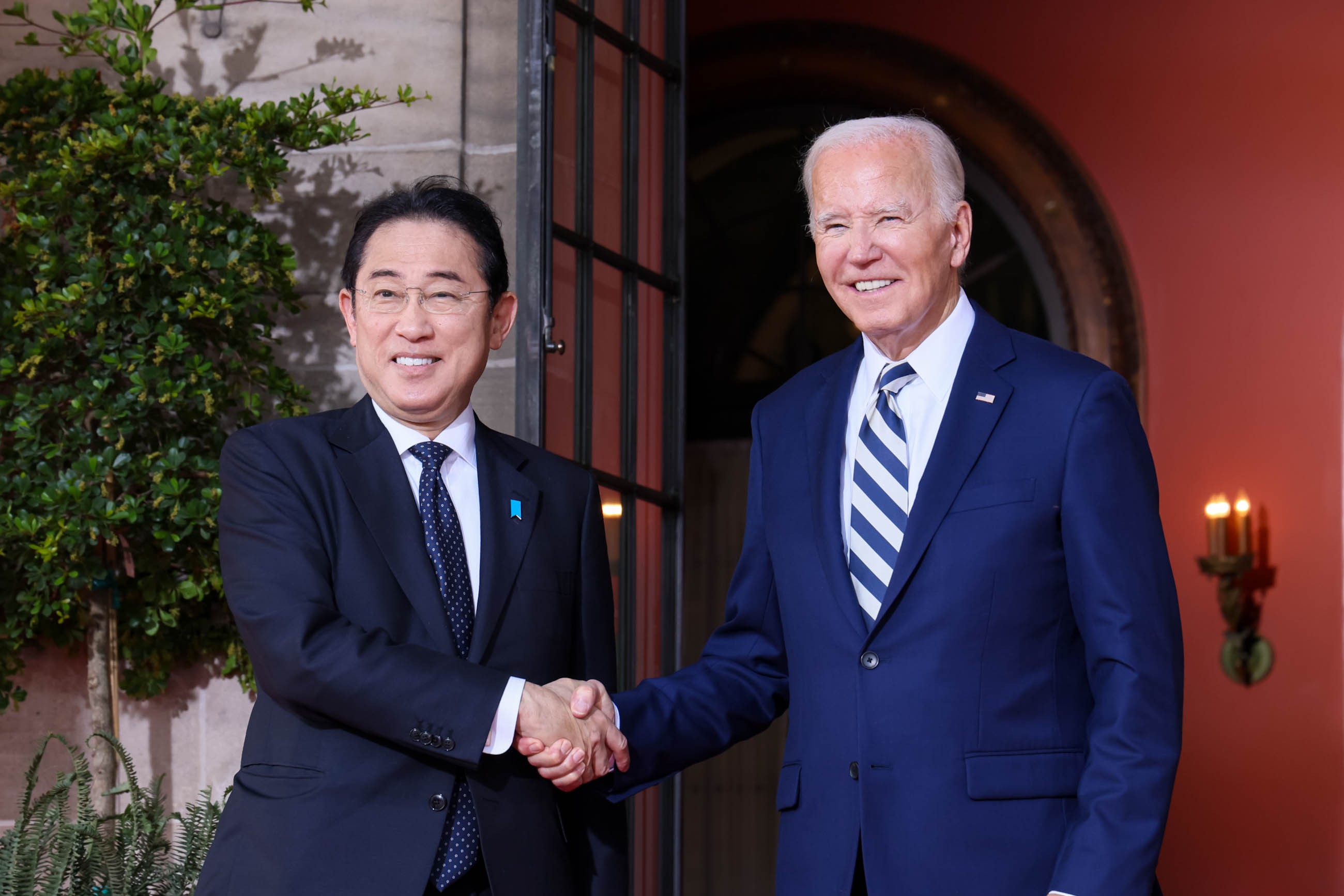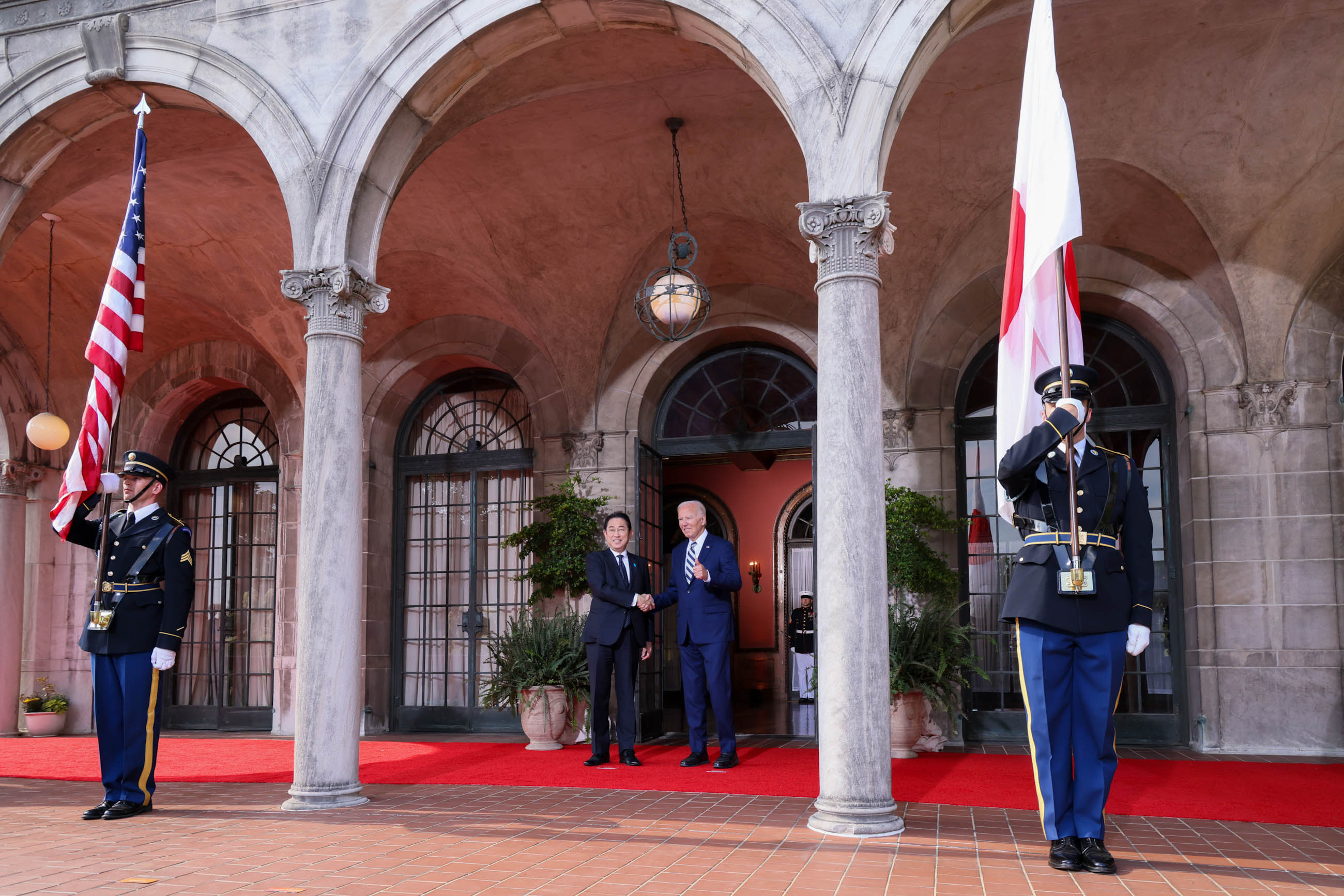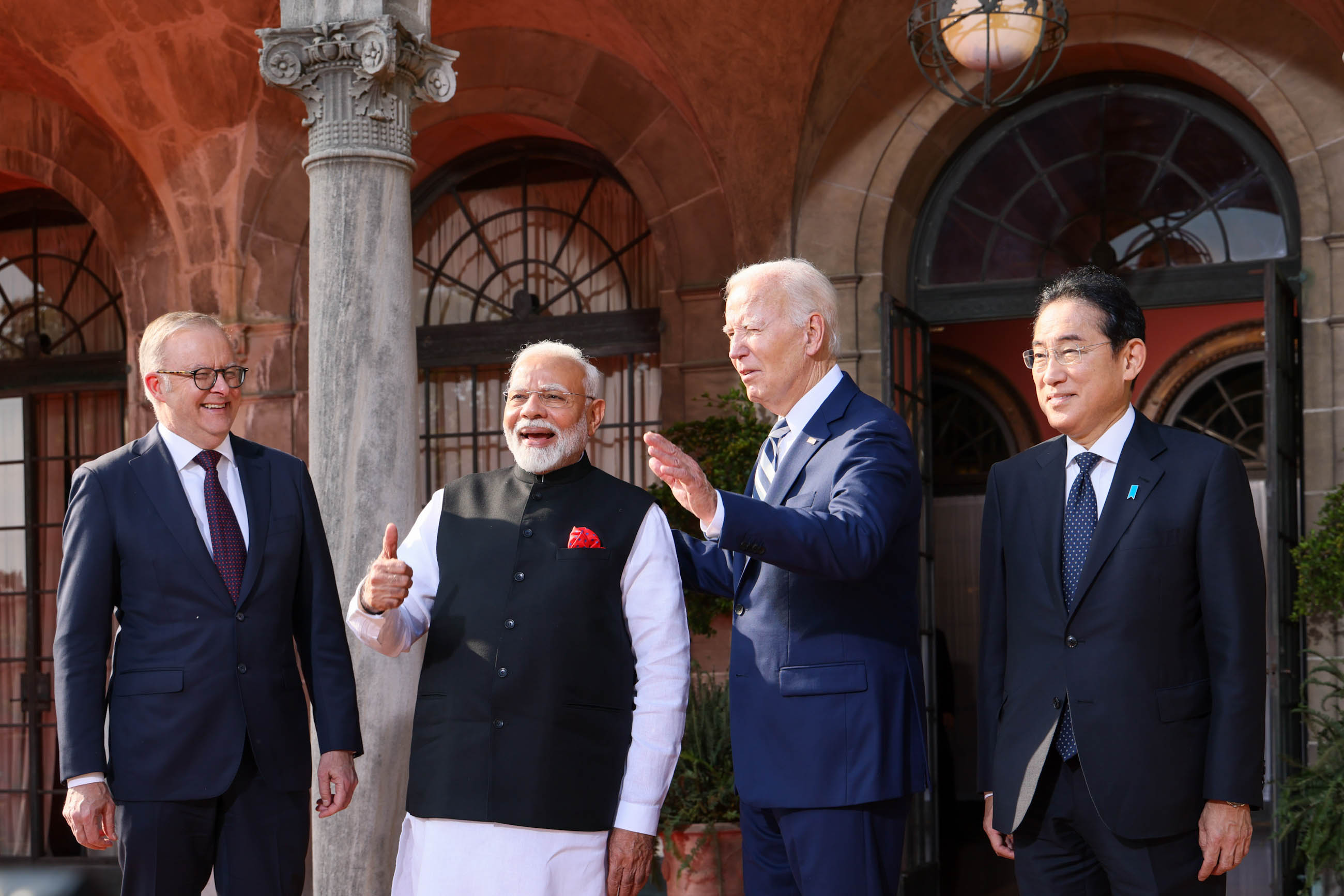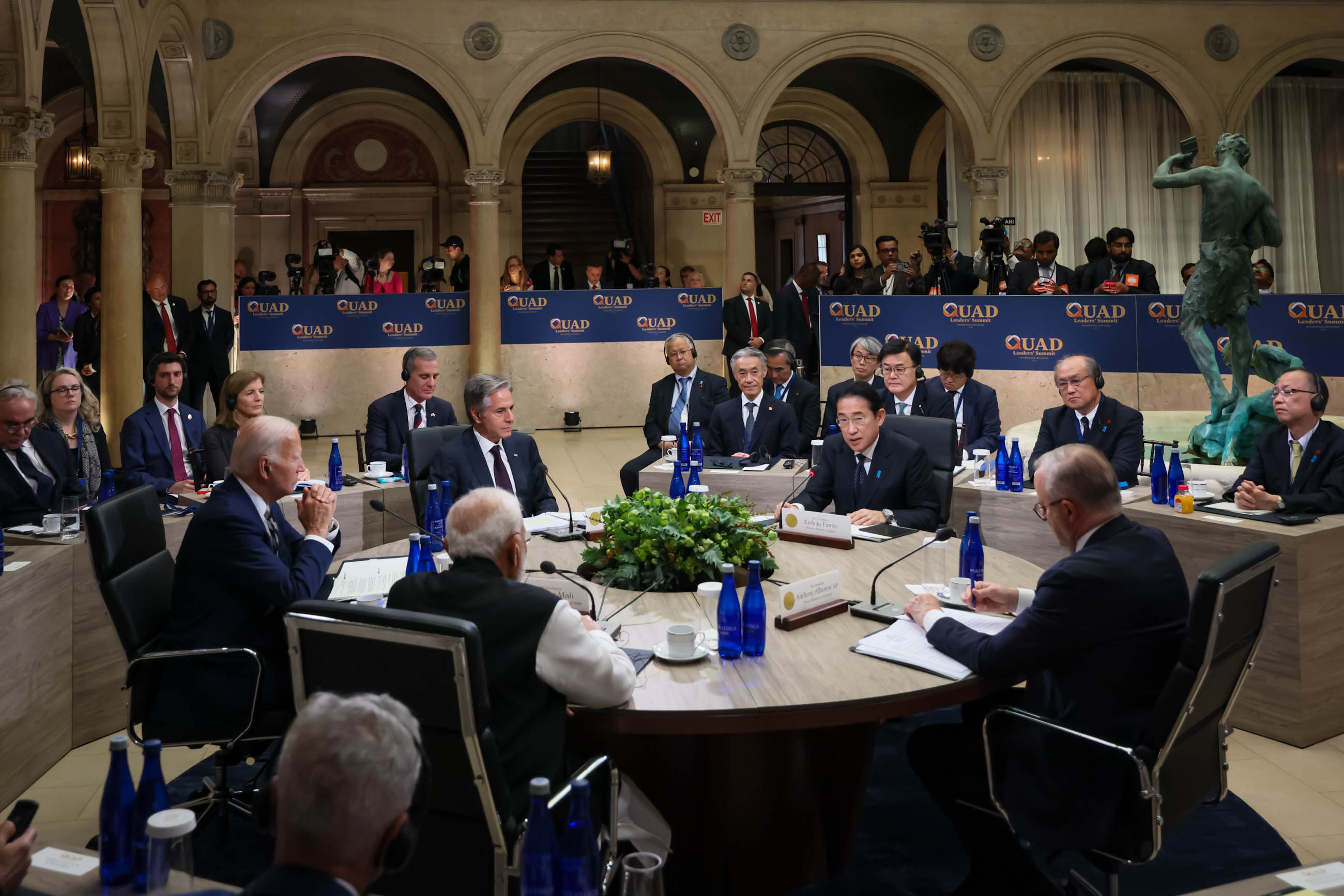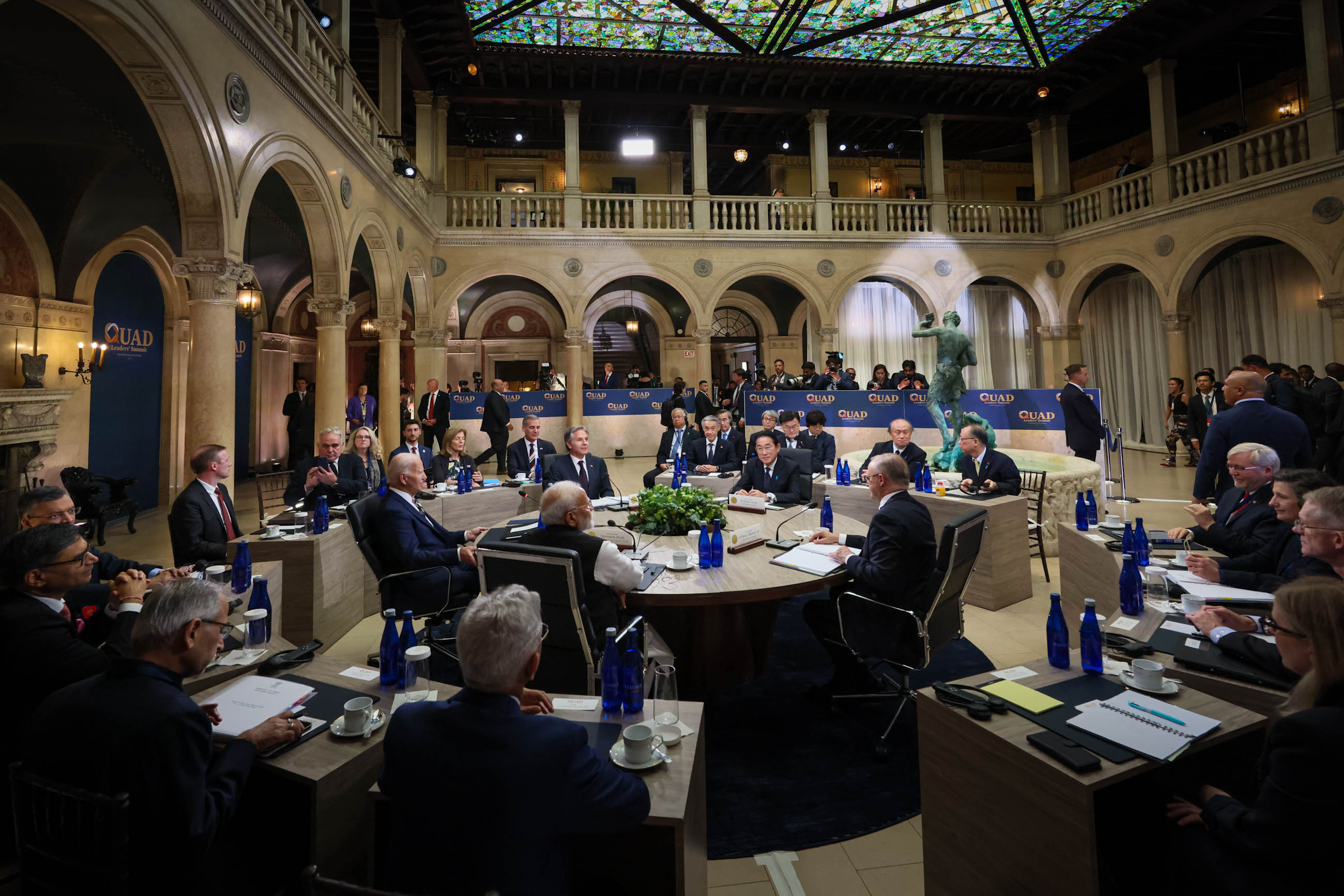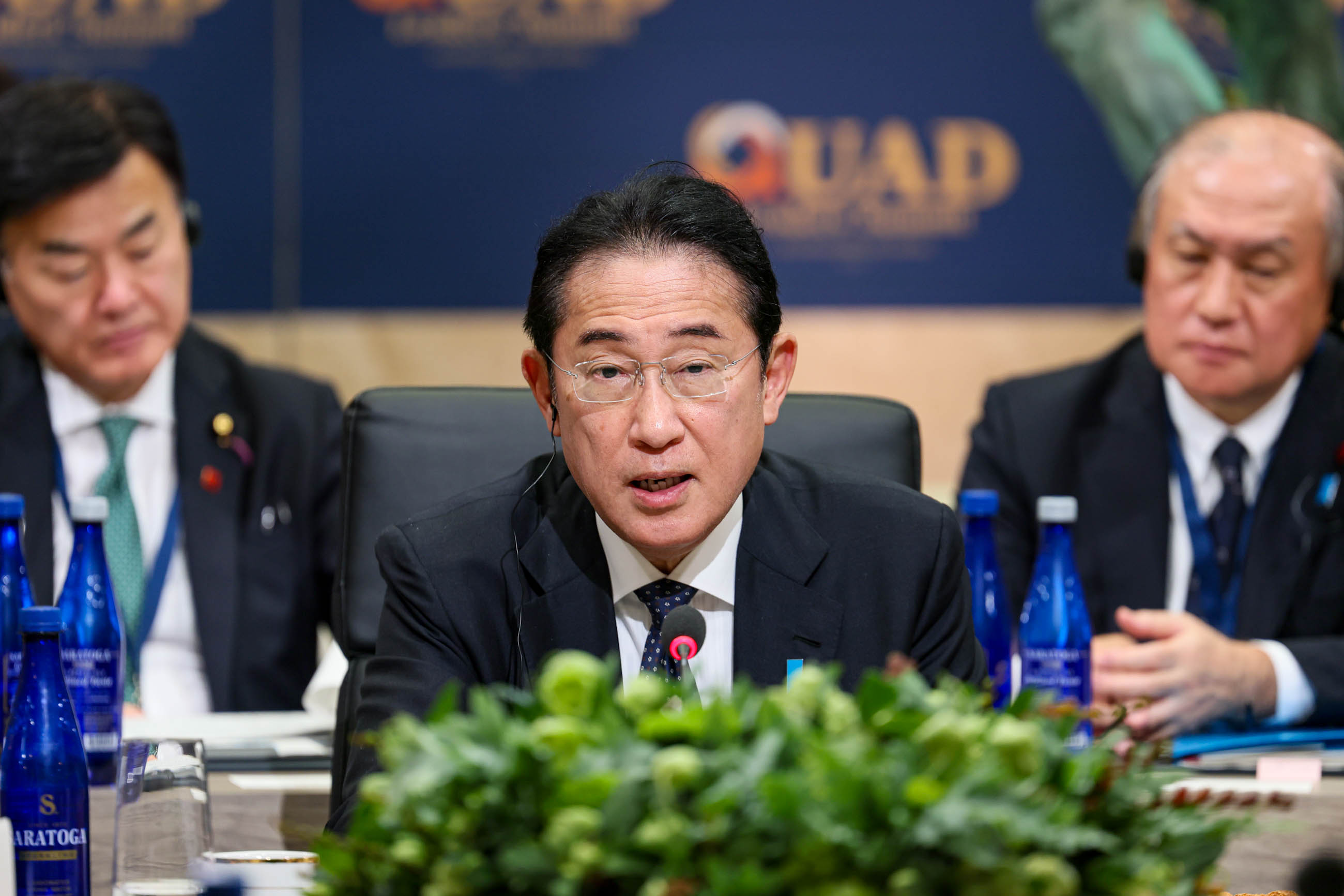Japan-Australia-India-U.S. (Quad) Leaders’ Meeting (Summary)
On September 21, commencing at 04:00 p.m. (EDT, on 22, at 05:00 a.m. JST) for approximately 2 hours, H.E. Mr. Kishida Fumio, Prime Minister of Japan, during his visit to Wilmington, Delaware, attended the Japan-Australia-India-U.S. (Quad) Leaders’ Meeting hosted by the United States, with The Honorable Anthony Albanese, MP, Prime Minister of the Commonwealth of Australia, H.E. Mr. Narendra Modi, Prime Minister of India, and the Honorable Joseph R. Biden, Jr., President of the United States of America. The overview of the meeting is as follows. On the occasion of the meeting, the Quad Joint Leaders’ Statement was released.
-
The four leaders welcomed the in-person Quad Leaders’ Meeting, following their meeting in Hiroshima last year. Prime Minister Kishida emphasized that it was even more important to demonstrate our strong commitment to the common vision of a “Free and Open Indo-Pacific” (FOIP) to the international community.
-
The four leaders shared the view that anchored by shared values, they seek to uphold the international order based on the rule of law, and are united in their commitment to upholding a stable and open international system, with its strong support for human rights, freedom, the rule of law, democratic values, sovereignty and territorial integrity, and peaceful settlement of disputes and prohibition on the threat or use of force in accordance with international law, including the UN Charter.
-
The four leaders confirmed that the Quad is and will continue to be transparent in what we do. They also shared the view that the respect for the leadership of regional institutions, including the Association of Southeast Asian Nations (ASEAN), the Pacific Islands Forum (PIF), and the Indian Ocean Rim Association (IORA), is and will remain at the center of the Quad’s efforts.
-
The four leaders exchanged the views on the situation in the Indo-Pacific.
(1) Prime Minister Kishida expressed strong opposition to any unilateral attempts to change the status quo by force or coercion in the East and South China Seas. The four leaders also emphasized the importance of adherence to international law, particularly as reflected in the United Nations Convention on the Law of the Sea (UNCLOS), to address challenges to the global maritime rules-based order, and continued to express their serious concern about the militarization of disputed features and coercive and intimidating maneuvers in the South China Sea, and condemned the dangerous use of coast guard and maritime militia vessels, including increasing use of dangerous maneuvers. In addition, they underscored that the 2016 Arbitral Award on the South China Sea is a significant milestone, and the basis for peacefully resolving disputes between the parties. Prime Minister Kishida also stated the basic position of Japan on Taiwan.
(2) The four leaders shared the view that they continue to support implementation of the ASEAN Outlook on the Indo-Pacific (AOIP) and are committed to ensuring the Quad’s work is aligned with ASEAN’s principles and priorities. They also underscored ASEAN’s regional leadership role, including in the East Asia Summit and the ASEAN Regional Forum, and confirmed that four countries intend to continue to strengthen their respective relationships with ASEAN as comprehensive strategic partners and seek opportunities for greater Quad collaboration in support of the AOIP.
(3) The four leaders reaffirmed to work in partnership with Pacific Island countries and reaffirmed their support for the PIF as the region’s premier political and economic policy organization. They also shared the view that they continue to support the objectives of the 2050 Strategy for the Blue Pacific Continent, and will continue to listen to and be guided at every step by Pacific priorities, including climate action, ocean health, resilient infrastructure, maritime security and financial integrity.
(4) The four leaders confirmed their commitment to strengthening cooperation in the Indian Ocean region. They also strongly supported IORA and recognized India’s leadership in finalizing the IORA Outlook on the Indo-Pacific (IOIP) and expressed support for its implementation. -
Following the discussion on the regional situation, four leaders confirmed the development of various cooperation projects as the practical cooperation which truly benefits the region.
(1) The four leaders confirmed that, as cooperation on health and safety in the Indo-Pacific region, the Quad, with the track record of cooperation on the COVID vaccine, will focus initially on combatting cervical cancer in the Indo-Pacific region, while laying the groundwork to address other forms of cancer as well. They confirmed that each country will take various initiatives. Japan will continue to (1) provide medical equipment and facilities and technical assistance, (2) collaborate with cancer-related institutions in each country, and (3) contribute to international organizations (such as Gavi).
(2) On humanitarian assistance and disaster relief (HADR), the four leaders confirmed that Quad governments pre-position essential relief supplies for the rapid HADR response.
(3) The four leaders concurred on launching a pilot project to pursue cooperation in airlift operations among the Quad countries in the event of natural disasters in the Indo-Pacific.
(4) The four leaders concurred on launching a Quad-at-Sea Ship Observer Mission in 2025, in order to share knowledge and experience as well as deepen interoperability and cooperation. They also confirmed to continue further missions in future years among the Quad countries across the Indo-Pacific region.
(5) The four leaders concurred on implementing “Maritime Initiative for Training in the Indo-Pacific (MAITRI)” to enable our partners in the region to maximize tools provided through the Indo-Pacific Partnership for Maritime Domain Awareness (IPMDA) and other Quad partner initiatives, to monitor and secure their waters, enforce their laws, and deter unlawful behavior. In addition, the four leaders announced their intention to layer new technology and data into IPMDA.
(6) The four leaders concurred on expanding cooperation in the area of 5G and Open RAN to the Philippines and Tuvalu and confirmed to continue to cooperate in the region to support secure, resilient, and interconnected communications systems.
(7) The four leaders confirmed that they will promote cooperation, including regular information sharing, on measures against disinformation through the Countering Disinformation Working Group. -
The four leaders confirmed that they will continue and strengthen the Quad’s efforts, and they concurred that India will hold the Leaders’ Meeting next year, and the U.S. will host the Foreign Ministers’ Meeting next year.
-
This meeting will be followed by a working dinner hosted by President Biden, where the four leaders will discuss international affairs, including North Korea, the situation in Ukraine and the situation in the Middle East.
-
President Biden, the host of this meeting, expressed his appreciation for Prime Minister Kishida's various efforts to date, including the Quad.
